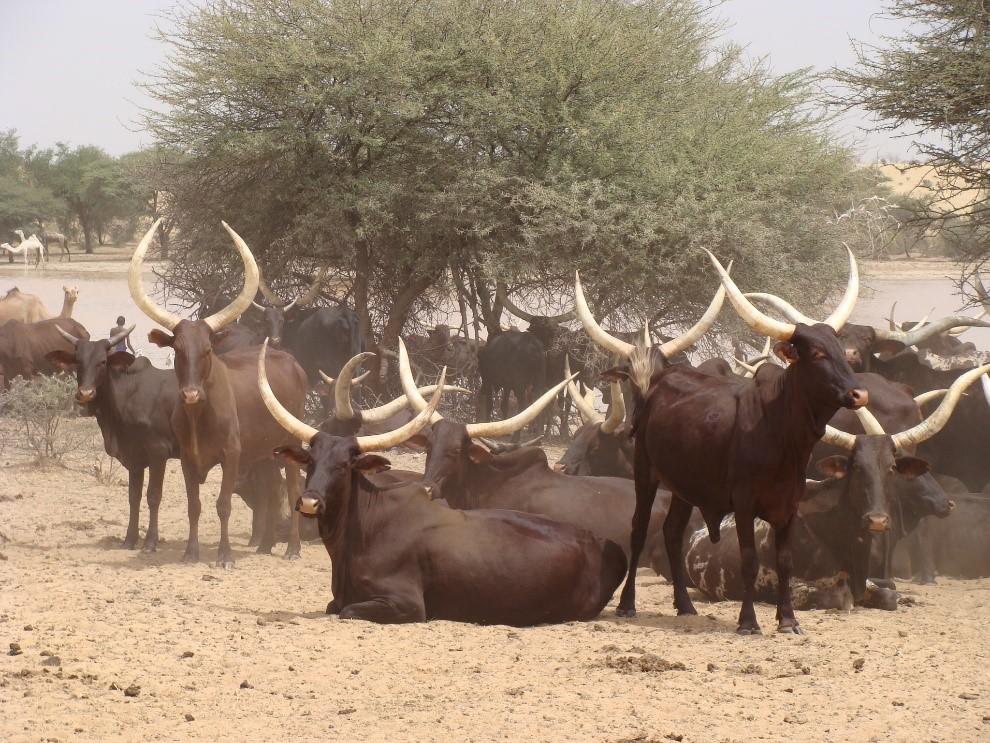- Home
- Worldwide
- CIRAD worldwide
- Projects
- ACCEPT project
Adapting access to agro-pastoral resources against a backdrop of mobility and climate change, for livestock production in Chad - ACCEPT

Bororo cows by a pond © I. Touré, CIRAD
Issues
With some 94 million head in all, ruminant production accounts for 44% of Chad's agricultural GDP. For almost 40 years, the country's livestock farmers have faced repeated droughts and flooding, and rising temperatures. Those climate changes are compounded by increased competition from agro-silvo-pastoral resources and land, leading to use conflicts and even confrontations. In this context, research must help to generate knowledge, test and assess innovations and develop decision support tools to make it easier from crop and livestock farmers to adapt to their new environment.
Description
To being with, field studies will serve to update reference data and disseminate those data to stakeholders in the sector. Innovations to facilitate access to agro-pastoral resources (producing livestock feeds from locally available by-products, installation of fodder crops, improved access to water) will then be built collectively, tested, assessed and disseminated via local innovation platforms. Lastly, decision support tools based on mapping and monitoring resources and pastoral movements will be developed and tested with local and national partners within the Plateforme pastorale du Tchad. Feedback workshops and regional and national scientific events (symposiums on pastoral land tenure, conferences) will be organized to disseminate the results of the project. To guarantee their sustainability, public/private partnerships will be fostered, notably centring on livestock rations and fodder sales, to enable some players to develop new economic activities. The project will also benefit from the expertise of the Plateforme pastorale du Tchad, to facilitate political dialogue between the various stakeholders (State, donors, producers' organizations) and suggest improvements to the draft rural code or the legal and regulatory framework governing environmental protection.
Particular attention will be paid to women and young people, to guarantee their involvement in management committees, increase their role in decision-making, and adapt innovations to their needs and abilities, keeping a close watch on gender differences in terms of workloads.
Expected impacts
- Research-based technical and organizational innovations will have improved access to agropastoral resources;
- Public livestock production policy and support services will be helping livestock farmers adapt to climate change;
- Livestock farmers will be included in agricultural production systems and markets;
- Rural families' living conditions will have improved.
Contract partners
IRED (Institut de recherche en élevage pour le développement), PPT (Plateforme pastorale du Tchad)























